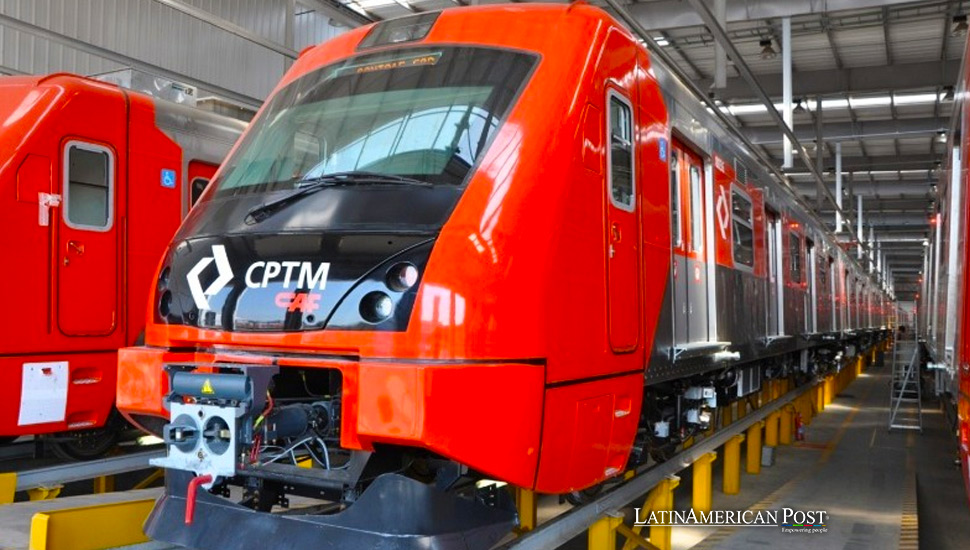Brazilian-Chinese Consortium Wins Bid for Major Railway Project Linking Sao Paulo to Campinas

A groundbreaking partnership between Brazil’s Comporte and China’s CRRC subsidiary secures a 30-year concession to construct a pivotal railway, promising to revolutionize transportation between Sao Paulo and Campinas with an eye on 2031 completion.
Transformative Railway Connection
In a significant development for Brazil’s infrastructure and transportation sector, a consortium led by Brazilian company Comporte and a subsidiary of the Beijing-based CRRC emerged as the sole bidder in a pivotal auction held on Thursday. This exclusive bid begins a transformative 30-year concession project to connect two of Sao Paulo’s key cities: Sao Paulo and Campinas. The consortium’s winning bid, adhering to the auction’s minimum requirements, proposed a nominal 0.01% discount on the nearly 8 billion reais ($1.61 billion) investment committed by the Sao Paulo government to this ambitious project.
The railway, anticipated to be operational by 2031, is expected to herald a new urban and regional mobility era within Brazil’s most populous state. With trains projected to run at an average speed of 95 kilometers per hour (59 mph), the new railway promises to significantly reduce travel time, enhance connectivity, and foster economic growth between Sao Paulo and Campinas, two critical hubs of business, technology, and education in the region.
Strategic Expansion to Jundiai
Furthermore, the project’s scope extends beyond the Sao Paulo-Campinas link, encompassing constructing an additional railway line connecting Jundiai to Campinas. This expansion amplifies the project’s impact and underscores the strategic importance of enhancing the state’s transportation infrastructure to support its continued development and urbanization.
The project’s ambitious investment total, estimated at 14 billion reais, reflects the consortium’s commitment to revolutionizing Sao Paulo’s transit system. This collaboration between a prominent Brazilian firm and a Chinese industry giant illustrates the growing trend of international partnerships in Latin America’s infrastructure projects, signaling robust confidence in the region’s economic potential and strategic importance globally.
With Brazil at the forefront, Latin America is witnessing an increasing influx of foreign direct investment in infrastructure, with China playing a pivotal role in the region’s development narrative. Like the Sao Paulo-Campinas railway project, other Latin American countries like Argentina, Chile, and Mexico have also embarked on significant infrastructure ventures, often with Chinese collaboration, ranging from transportation to energy and telecommunications.
Benefits of International Collaborations
These partnerships bring substantial economic investments into the region and facilitate the transfer of technology, expertise, and best practices in infrastructure development. The Sao Paulo-Campinas railway project is a testament to the potential benefits of such international collaborations, promising to enhance local infrastructure and bolster Brazil’s position in the global economy.
As Brazil and its Latin American neighbors continue to navigate the challenges and opportunities of urbanization and economic expansion, projects like the Sao Paulo-Campinas railway serve as beacons of innovation and progress. They symbolize the strengthening ties between Latin America and global powers like China and underscore the critical role of infrastructure in shaping the future of urban living and economic development in the region.
Also read: IATA Challenges Brazil on High Jet Fuel Costs, Seeks Change
With an eye towards 2031, the Sao Paulo-Campinas railway project is set to become a cornerstone of Brazil’s transportation infrastructure, embodying the aspirations for a more connected, efficient, and prosperous future for the Sao Paulo state and beyond. As the project unfolds, it will undoubtedly attract keen interest worldwide, spotlighting the transformative power of international partnerships in driving national and regional development agendas.




